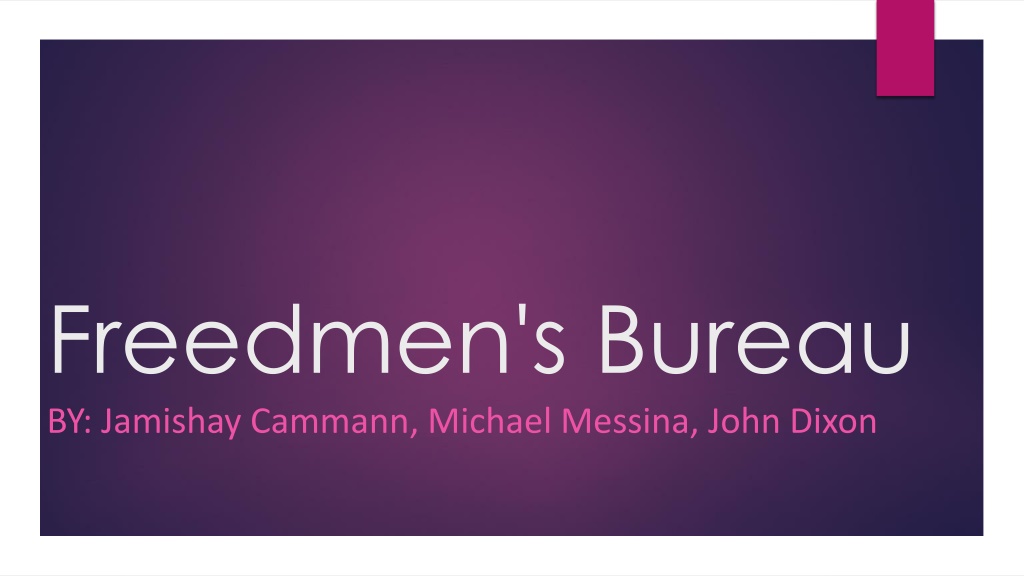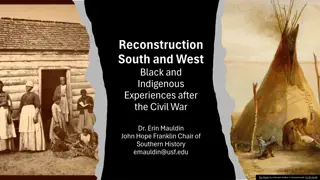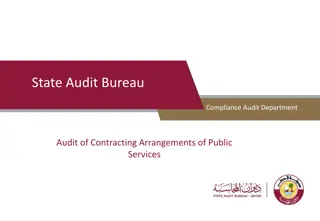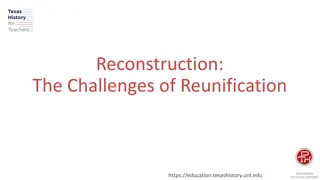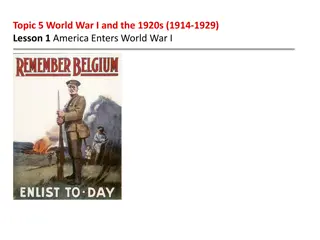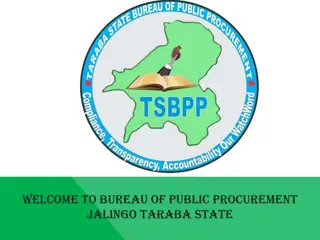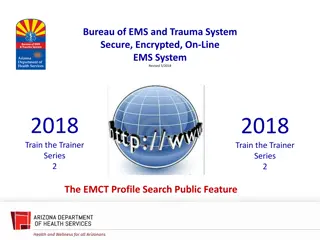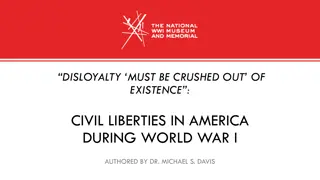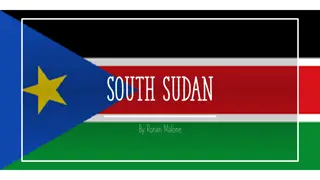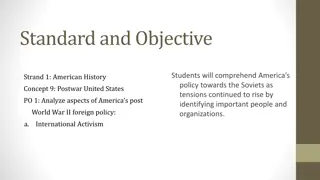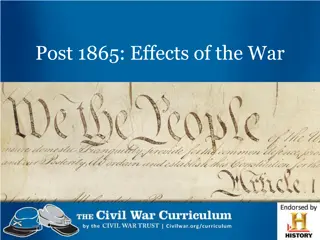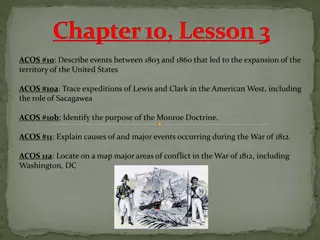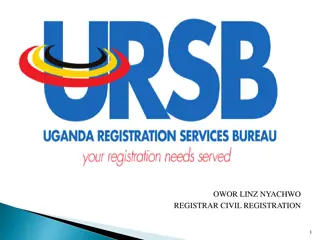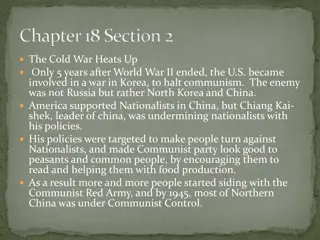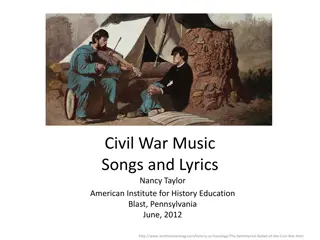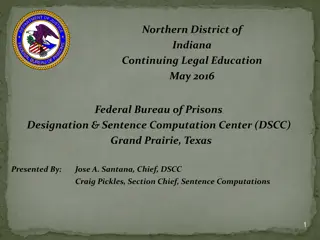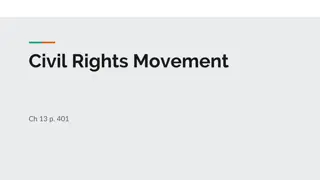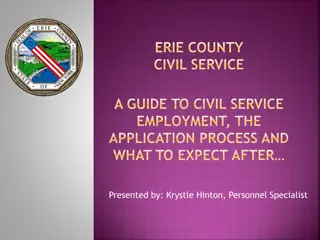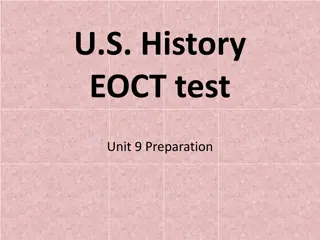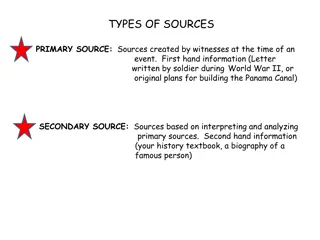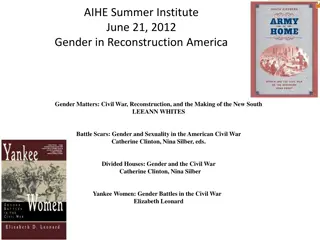Impact of the Freedmen's Bureau in Post-Civil War America
The Freedmen's Bureau played a crucial role in reconstruction-era America, aiding freed slaves, promoting labor rights, managing property, and supporting education. It advocated for fair treatment, provided relief to the impoverished, and facilitated the transition from slavery to freedom. Through its initiatives, it helped reshape social dynamics and empower marginalized communities in the aftermath of the Civil War.
Download Presentation

Please find below an Image/Link to download the presentation.
The content on the website is provided AS IS for your information and personal use only. It may not be sold, licensed, or shared on other websites without obtaining consent from the author. Download presentation by click this link. If you encounter any issues during the download, it is possible that the publisher has removed the file from their server.
E N D
Presentation Transcript
Freedmen's Bureau BY: Jamishay Cammann, Michael Messina, John Dixon
Freedmen's Bureau Plans The Bureau encouraged former major planters to rebuild their plantations and urged freed blacks to return to work for them, kept an eye on contracts between the newly free laborers and planters, and pushed whites and blacks to work together in a free labor market as employers and employees rather than as masters and slaves. U.S. President Andrew Johnson, a Southern Democrat who had succeeded to the office following Lincoln's assassination, vetoed the bill because he believed that it encroached on states' rights, relied inappropriately on the military in peacetime, and would prevent freed slaves from becoming independent by offering too much assistance.
Freedman's Bureau Desires Perform relief work for both black and white poor people in war- stricken areas in the South The regulation of conditions of freedmen (black) labor The administration of justice in cases concerning the black freedmen The management of abandoned and confiscated property including the redistribution of 'abandoned' lands to former slaves The support of education for freedmen
Freedman's Bureau Outcomes The refugees, freed slaves and other outcasts were given abandoned land to help bring them into society that had once heavily oppressed them. The secretary of war funded the Freedman's Bureau and gave them provisions such as clothing, fuel, and temporary shelter. Was a stepping stone in which newly freed slaves would be able to transition to freedom in the south. Whites and blacks were pushed to work with one another no longer in a work involving slave labor but a free labor market Howard University, Hampton Institute, Atlanta University, and Fisk University were established
Freedmen's Bureau Gains of Freedom The refugees, freedman and other outcasts were given abandoned lands and control over rebel states. No longer were forced to do unpaid labor and slave work but still had to do manual labor. Freedman were no longer considered slaves as slavery was abolished in America after the civil war, but the freedman's bureau allowed these peoples who had been enslaved for hundreds of years to transition into society. Schools were built to provide education for black people.
Should the Freedmen's Bureaus and its programs by funded by the federal government?? The bureau was underfunded and understaffed, but it still managed to do a lot of things, build schools, housing and helped the unemployed find jobs so they had money. If the government gave them money, they would have been more successful and be able to do twice what they accomplished. They did okay with their 900- person staff even is some of the workers were corrupt and not doing their jobs. We think with the support from the government and some money from congress so they could have gotten more workers and been able to last more than a year. The bureau would also be helping the economy and building the south back up. It also could have helped build the support from the people.
Sources http://www.american-historama.org/1860-1865-civil-war-era/freedmens- bureau.htm https://www.history.com/topics/black-history/freedmens-bureau https://socialwelfare.library.vcu.edu/federal/freedmen%E2%80%99s- bureau/ https://www.history.com/topics/black-history/freedmens-bureau https://www.britannica.com/topic/Freedmens-Bureau https://www.khanacademy.org/humanities/us-history/civil-war- era/reconstruction/a/the-freedmens-bureau https://www.americanhistoryusa.com/education-religion-black- community-reconstruction/ https://www.history.com/this-day-in-history/freedmans-bureau-created
https://www.familytree.com/blog/freedmens-bureau-records-of-hospital- patients-and-medical-conditions-1865-1872/ www.encyclopediaofalabama.org/article/m-6202 https://www.u-s-history.com/pages/h410.html https://theblackwallsttimes.com/2018/02/05/the-freedmens-bureau-bill- proposal%E2%80%8B/ https://www.lds.org/church/news/history-channel-supports-freedmens- bureau-project-in-commemoration-of-roots-tv-series?lang=eng
